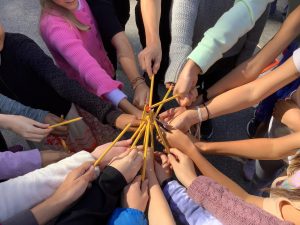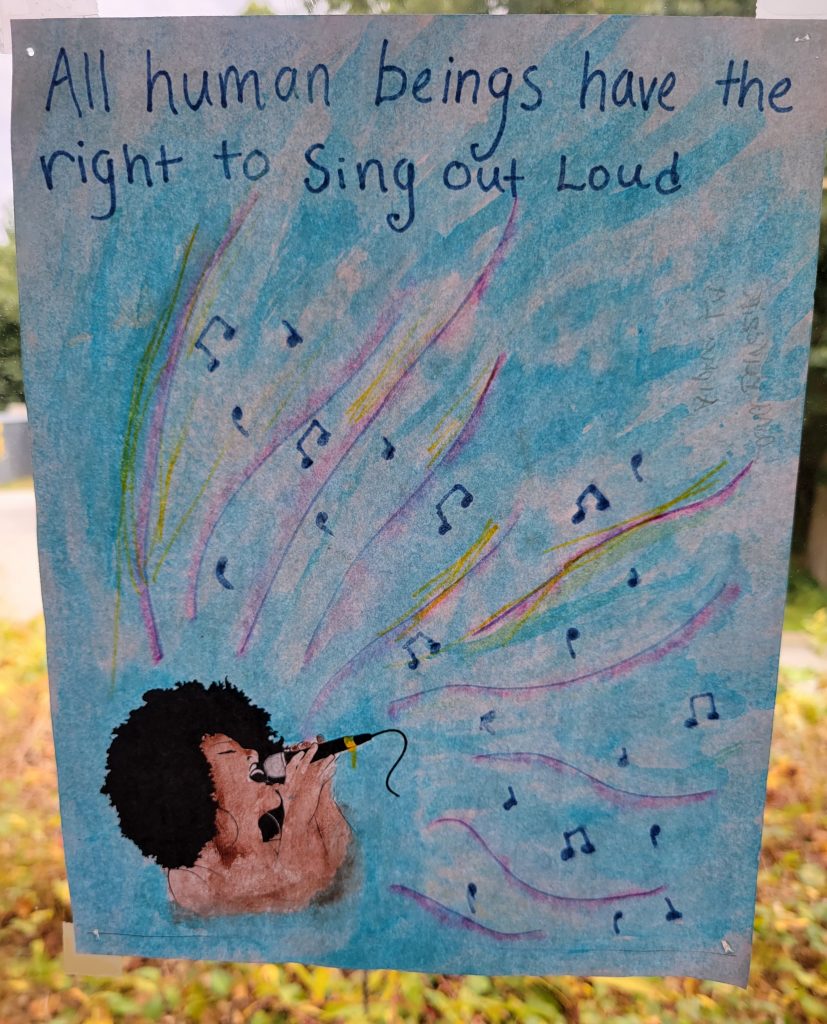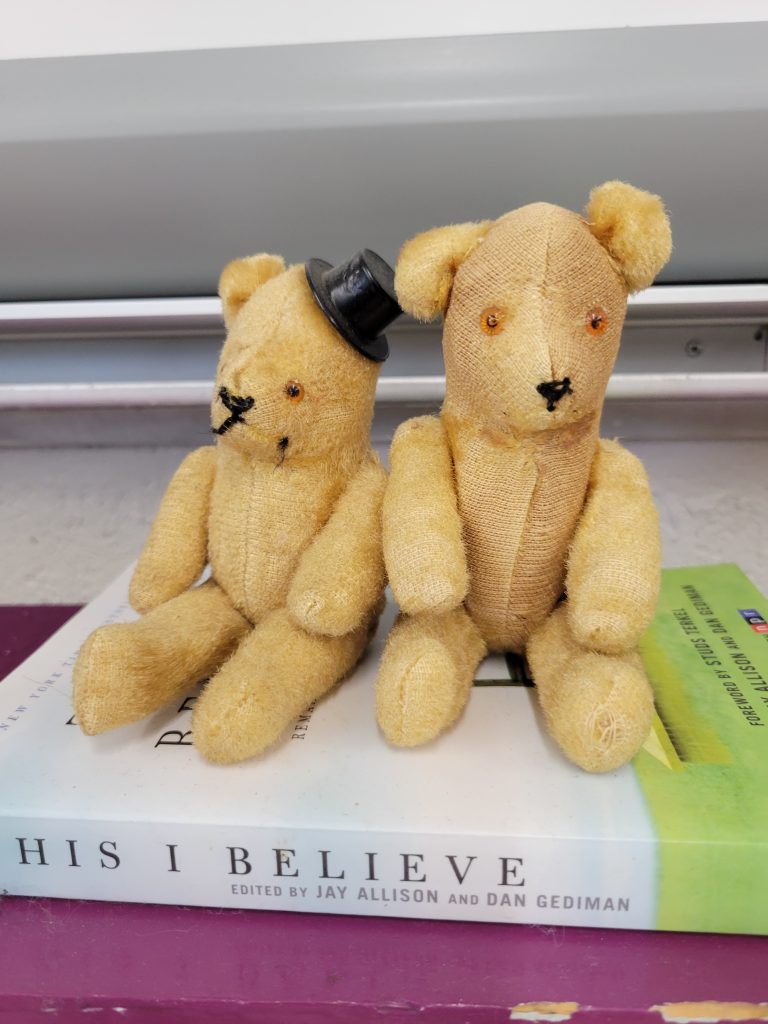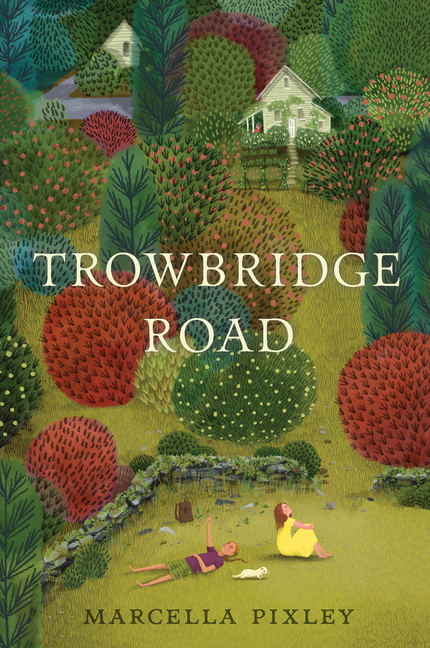From Teaching to Writing

TeachingBooks asks each author or illustrator to reflect on their journey from teaching to writing. Enjoy the following from Marcella Pixley.

For the past fifteen years, I have been hosting a Friday lunch club in my classroom. Writers’ Guild is a safe haven for any student in the middle school to gather in community to talk about being a writer, to read their works in progress out loud, and to support each other in creating stories and poems that matter. Writers’ Guild attracts the most wonderful middle schoolers: quirky, passionate, off-beat kids who would rather write about dragons or vampires than spend their Friday lunch in the cafeteria with the other middle schoolers. I love them for this, and I appreciate the bold expressions of individuality that tumble into my room once a week, kids wearing cat-ears, kids who have shaved or dyed their hair, kids clutching journals, or iPads or sketchbooks that contain their own brave voices.
Since this is a club for writers in grades 5-8, some are barely adolescents when they step through my door for the first time, while others seem to be almost adults. The fifth graders enter a little bit afraid of sitting in an older kids’ classroom. The eighth graders enter already bursting from the intensity of their desire to spread their wings and leave our tiny, rural school. Our practice these days is to spend the first ten minutes together, just writing silently, working on our own projects and trying to achieve our individual goals. They sprawl on the floor, or lean up against the wall, and for a while, the class room is filled with tapping and scribbling. Sometimes there is the uneasy silence of kids with writers’ block staring off into space, trying to get back in the zone.
The writers are in charge of what kind of feedback they want to receive.

The real magic of Writers’ Guild happens when quiet writing time is over, and kids have the chance to read their projects out loud to each other. They are not obligated to share, but most choose to read because of how good it feels to be affirmed by their peers. The writers are in charge of what kind of feedback they want to receive. If a story is new, or if they are feeling fragile, they can ask to only hear what is working. We talk about how new projects are sometimes like new trees, it takes a while for their roots to grow deep, and sometimes even well-meaning critique can knock them over. So we practice being gentle when we give feedback.
During critique, Kids call on each other while the writer listens and takes notes. I appreciate the way you are building your world. I love the voice of your main character. I am really drawn in by your use of visual imagery here. If the writer asks for critique, we continue to practice gentleness so that our feedback never shatters the safe space of our workshop. When possible, we try to pose our critique in the form of a question or by expressing what we wonder or what we would love to see happen when the writer sits down again. I wonder what would happen if you spent a little more time developing the landscape so that we can feel ourselves there. I would love to see you playing with the relationship between these two characters even more. What would happen if you deleted the repetition so that every sentence sounds new? This way, every comment in the room becomes a vehicle for connection, and the critique itself becomes a way to build community and trust. The writer leaves the workshop feeling affirmed and heard. This is what keeps them coming back, and it is the reason some of our members stay in Writers’ Guild all four years of middle school.

Over the years, I have brought my own pages of not-yet-published novels to Writers’ Guild to find out if my stories were working for their intended audience. FREAK found its footsteps within the safe space of Writers’ Guild, as did WITHOUT TESS and READY TO FALL. I remember reading the very first chapter of TROWBRIDGE ROAD to my Writers’ Guild kids, before I had even sent it out to my agent. I was a little nervous. I told them that I was not quite ready for critique because this story was so new, and so important to me. I remember taking a deep breath and reading the very first sentence in a room filled with middle school kids: It was clear that the summer was about to change as soon as Jenny Karlo’s rusty old Chevy came clattering down Trowbridge Road at a quarter past two, the radio pounding heavy metal into the neighborhood, shattering the lazy Thursday afternoon like a rock through a dusty window. I could tell by their expressions that they were hooked. And then afterwards, when it came time for them to tell me what worked and some of the kids had tears in their eyes, I knew I had something worth keeping. Two years later, when TROWBRIDGE ROAD was released, my audience was filled with Writers Guild members from the present and past. They had become part of the story, and it was fitting that they be part of the celebration.
These are the magical places where we are known and where our voices and our imaginations are most welcome.
If you are reading this blog, you are probably a teacher, and if you are a teacher you know that the last two years in our classrooms have been filled with challenges that none of us ever expected to face. It makes sense that during times like these, our creative communities have become even more important than they ever were before. These are the magical places where we are known and where our voices and our imaginations are most welcome. These are the places where it is okay to be bold, and where we can trust each other not only to listen, but to express gratitude and appreciation for our stories and for the strength of our voices whether we are fifth graders, just beginning their journey, or eighth graders getting ready to become adults, or teachers in their fifties, who might just need a little push to help get the next novel finished.
Books and Resources

TeachingBooks personalizes connections to books and authors. Enjoy the following on Marcella Pixley and the books she’s created.
Listen to Marcella Pixley talking with TeachingBooks about the backstory for writing Trowbridge Road. You can click the player below or experience the recording on TeachingBooks, where you can read along as you listen, and also translate the text to another language.
- Listen to Marcella Pixley talk about her name
- Explore the Discussion Guide from Candlewick for Trowbridge Road
- Discover Marcella Pixley’s page and books on TeachingBooks
- Visit Marcella Pixley on her website, Facebook, Twitter, and Instagram.
Explore all of the For Teachers, By Teachers blog posts.
Special thanks to Marcella Pixley, Blue Slip Media, and Candlewick for their support of this post. All text and images are courtesy of Marcella Pixley and Candlewick, and may not be used without expressed written consent.



You are so amazing.
A therapist inside a writer knowing instinctively what builds relationships.
You invite these kids into a non-judgmental warm free flowing space where they feel important..be listened to.and be challenged offering their most intimate self without fear .
Bravo.
I never knew the ferrets name was Jessica